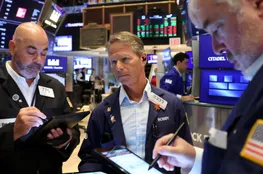Wall Street sentiment on Boeing is improving as 737 MAX production increases. Positive developments surrounding Boeing are driving a significant shift in investor perception, with analysts increasingly optimistic about the aerospace giant’s future prospects. A substantial 69% of analysts surveyed by FactSet now rate Boeing stock as either a ‘buy’ or ‘overweight,’ representing a notable increase from the 52% observed at the close of 2024. These revised assessments translate into consensus price targets indicating approximately a 2% upside from Wednesday’s closing price. Boeing’s performance in 2025 has been particularly strong, boasting gains of nearly 20%, significantly outpacimg the S&P 500’s rise of 1.5%. Several prominent Wall Street firms, including JPMorgan, Wolfe Research, and Bernstein, have recently raised their price targets for Boeing stock, reflecting this renewed confidence. JPMorgan and Wolfe Research, in particular, attribute their more positive outlook to the accelerated pace of 737 MAX production and a landmark order from Qatar Airways, solidified during President Donald Trump’s visit to the Middle East. Bernstein analyst Douglas Harned highlights Boeing’s strategic goal of steadily increasing monthly 737 MAX production, aiming for a sustainable rate of around 38 aircraft per month, as a key driver of the sentiment shift. Harned emphasized that Boeing’s stock is a ‘momentum-type’ investment, suggesting investors will likely enter the stock well before its full potential is realized. He noted that skepticism has gradually lessened as investors begin to recognize the positive developments. Boeing CEO Kelly Ortberg announced last month that the company was resuming plane deliveries to China in June, a move spurred by the easing of trade tensions under the Trump administration. Ortberg further stated at Bernstein’s Strategic Differences Conference that Boeing could potentially produce as many as 42 737 MAX planes by the end of the year. Harned characterized this situation as a return to the company’s pre-2019 trajectory, a period marked by optimism and growth prior to the 737 MAX grounding and the impact of the COVID-19 pandemic. Harned’s $249 per share price target represents an impressive 17% upside from Wednesday’s closing price of $211.98.
The resurgence in Boeing’s stock performance is rooted in challenges that began in 2018, triggered by the Lion Air Flight 610 crash, which tragically resulted in the loss of all 189 lives. Following a second fatal crash, the entire 737 MAX fleet was grounded for 20 months. Further complications arose last year when a 737 MAX 9 experienced a door being ripped off mid-flight. Wolfe Research analyst Myles Walton initially expressed optimism about improved 737 MAX production times in 2025, a sentiment reinforced by the substantial Qatar Airways order. Walton declared, "A Big Beautiful Order should help (not yet) big beautiful cash flow," and subsequently raised his price target to $230 per share from $195 last month, reflecting a 9% upside from Wednesday’s close. JPMorgan analyst Seth Seifman also voiced a positive outlook, noting that balance sheet concerns had been addressed for the next few years and that Boeing possesses a substantial backlog of approximately $500 billion. Seifman specifically highlighted the importance of gradually increasing production of 737s and 787s while simultaneously progressing toward the entry into service of the 777X.
Despite Seifman’s optimistic assessment, JPMorgan’s lower price target of $200 per share indicates a potential 6% downside from Wednesday’s close. The overall recovery of Boeing’s stock reflects a combination of factors, including the resolution of operational issues, the resumption of deliveries, and the anticipated growth driven by increased production volumes.
























